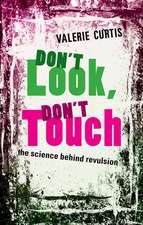Cancer, Culture and Communication
Editat de Rhonda J. Moore, David Spiegelen Limba Engleză Paperback – 23 apr 2013
This volume creates a multi-disciplinary dialogue about clinician-patient communication. It offers a description of the relevance of culture as a contextual effect that impacts the clinician-patient relationship. Some important topics addressed include: -Oncology care;
-Quality of life issues;
-Supportive survivorship;
-Cultural differences in health care;
-Multidisciplinary medical approaches.
This book is for physicians, nurses, hospice and palliative care professionals and public health professionals who would like to understand the ways we can improve clinician-patient communication in culturally diverse medical settings. It is also suitable for graduate level courses in medical education, oncology, and health care.
| Toate formatele și edițiile | Preț | Express |
|---|---|---|
| Paperback (1) | 718.29 lei 43-57 zile | |
| Springer Us – 23 apr 2013 | 718.29 lei 43-57 zile | |
| Hardback (1) | 727.97 lei 43-57 zile | |
| Springer Us – 31 dec 2003 | 727.97 lei 43-57 zile |
Preț: 718.29 lei
Preț vechi: 756.09 lei
-5% Nou
Puncte Express: 1077
Preț estimativ în valută:
137.49€ • 149.39$ • 115.56£
137.49€ • 149.39$ • 115.56£
Carte tipărită la comandă
Livrare economică 21 aprilie-05 mai
Preluare comenzi: 021 569.72.76
Specificații
ISBN-13: 9781475778991
ISBN-10: 1475778996
Pagini: 344
Ilustrații: XXIII, 317 p.
Dimensiuni: 155 x 235 x 18 mm
Greutate: 0.48 kg
Ediția:Softcover reprint of the original 1st ed. 2004
Editura: Springer Us
Colecția Springer
Locul publicării:New York, NY, United States
ISBN-10: 1475778996
Pagini: 344
Ilustrații: XXIII, 317 p.
Dimensiuni: 155 x 235 x 18 mm
Greutate: 0.48 kg
Ediția:Softcover reprint of the original 1st ed. 2004
Editura: Springer Us
Colecția Springer
Locul publicării:New York, NY, United States
Public țintă
Professional/practitionerCuprins
Cancer across Cultures.- Culture and Oncology.- Quality of Life in Culturally Diverse Cancer Patients.- Cancer and Aging.- Children with Cancer.- Cancer Risk Assessment.- Cancer Interventions across Cultures.- Cancer Prevention.- Cross-Cultural Aspects of Cancer Care.- Symptoms and Their Management across Cultures.- The Cultural Experience of Cancer Pain.- Complementary and Alternative Medicine in Patients with Cancer.- Dying and Death in Different Cultures.- Bereavement across Cultures.- The Unmet Need.
Recenzii
"This important scholarly volume provides a powerful description of the relevance of culture as a critical context effect that dramatically influences provider-consumer communication and health outcomes in the Western context of cancer care. Culture is illustrated in the book's chapters as a pervasive variable, encompassing linguistic, national, ethnic, age, gender, socio-economic, and even professional beliefs, framing health care providers' and consumers' expectations and responses to cancer care. To be effective, communication in cancer care must be responsive to the cultural beliefs, values, and attitudes that participants bring to the health care setting. Culturally sensitive communication in cancer care can take advantage of distinct context effects for therapeutic benefit. This book provides the reader with a vivid sense of the powerful cultural issues that face provider-consumer communication in oncology, and also suggests strategies for adapting cancer communication to meet unique cultural demands."
(Gary L. Kreps, Ph.D., Chief, Health Communication and Informatics Research Branch, National Cancer Institute)
"In order to have meaningful communication between clinicians and patients, it is essential there is mutual understanding of each other's cultures. There is diversity across ethnic groups and equally important within ethnic groups. This book reinforces the importance of culture as a context for cancer care and introduces the reader to strategies for understanding how we all represent our own culture and how to communicate with each other to enhance our life experiences. The book needs to become required reading for clinicians from all disciplines."
(Ruth McCorkle, Ph.D., Director, Center for Excellence in Chronic Illness Care, Yale University School of Nursing)
(Gary L. Kreps, Ph.D., Chief, Health Communication and Informatics Research Branch, National Cancer Institute)
"In order to have meaningful communication between clinicians and patients, it is essential there is mutual understanding of each other's cultures. There is diversity across ethnic groups and equally important within ethnic groups. This book reinforces the importance of culture as a context for cancer care and introduces the reader to strategies for understanding how we all represent our own culture and how to communicate with each other to enhance our life experiences. The book needs to become required reading for clinicians from all disciplines."
(Ruth McCorkle, Ph.D., Director, Center for Excellence in Chronic Illness Care, Yale University School of Nursing)















